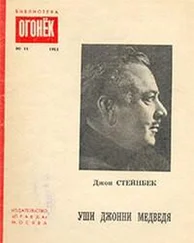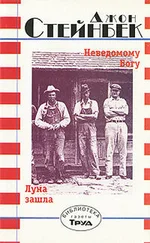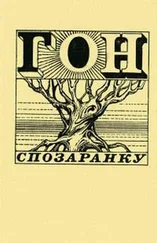Джон Стейнбек - Cup of Gold [Золотая чаша]
Здесь есть возможность читать онлайн «Джон Стейнбек - Cup of Gold [Золотая чаша]» — ознакомительный отрывок электронной книги совершенно бесплатно, а после прочтения отрывка купить полную версию. В некоторых случаях можно слушать аудио, скачать через торрент в формате fb2 и присутствует краткое содержание. Год выпуска: 1929, Жанр: Прочие приключения, на английском языке. Описание произведения, (предисловие) а так же отзывы посетителей доступны на портале библиотеки ЛибКат.
- Название:Cup of Gold [Золотая чаша]
- Автор:
- Жанр:
- Год:1929
- ISBN:нет данных
- Рейтинг книги:5 / 5. Голосов: 1
-
Избранное:Добавить в избранное
- Отзывы:
-
Ваша оценка:
- 100
- 1
- 2
- 3
- 4
- 5
Cup of Gold [Золотая чаша]: краткое содержание, описание и аннотация
Предлагаем к чтению аннотацию, описание, краткое содержание или предисловие (зависит от того, что написал сам автор книги «Cup of Gold [Золотая чаша]»). Если вы не нашли необходимую информацию о книге — напишите в комментариях, мы постараемся отыскать её.
Cup of Gold [Золотая чаша] — читать онлайн ознакомительный отрывок
Ниже представлен текст книги, разбитый по страницам. Система сохранения места последней прочитанной страницы, позволяет с удобством читать онлайн бесплатно книгу «Cup of Gold [Золотая чаша]», без необходимости каждый раз заново искать на чём Вы остановились. Поставьте закладку, и сможете в любой момент перейти на страницу, на которой закончили чтение.
Интервал:
Закладка:
The buccaneers have never been the force I mean to make them. Why, I could form armies and navies of them, my dear uncle. In time I would lead the whole Free Brotherhood of the Coast, and it would be an armed power to reckon with.
"These things I have considered in the long years of my slavery. There is a crying in my heart to do these things. I think the end of all my dreaming is a great name and a great fortune. I know my powers. I am twenty years old; I have had several years at sea; and I have a thousand pounds. The man who helps me now-who goes with me as partner-I will make rich. I am so very sure I can do these things-so very sure.
"I ask you, my uncle, to add to my thousand pounds enough so that I may buy a fitted ship and gather the free, brave spirits about me to do my will. If you will place another thousand pounds in my hands, I swear to make you richer than you are."
The harp was no longer sounding. At the beginning of the boy's outburst, Sir Edward had held up his hand as though to stop him, but the words plunged on. And when the harp had been silenced, Sir Edward looked uneasily toward the door. Now he seemed to bring his interest back to Henry.
"I have no money to risk in unsure ventures," he said sharply. "And I have no more time for talk. The Governor is coming to consult with me in a moment. But I would say that you are a wild, careless boy who is like to come to hanging of your ventures. Your father is like you, only his is a wildness of the mind.
"And I must inform you that there is peace between Spain and England; not very good feeling, it is true, but still, peace. If you go marauding it will be my duty to see you punished, sorry for it though I may be.
The Roundheads are no longer in power and those wild things that Cromwell overlooked are carefully watched now. Remember what I say, for I would not like to hang my nephew. Now I must really bid you good day."
Tears of resentment stood in Henry's eyes.
"Thank you for coming to see me," his uncle said. "Good-by." And he went through the curtained doorway.
In the street, Henry walked moodily along. He saw his cousin a short distance ahead of him, a tall Negro attendant upon her. He continued slowly that she might leave him behind, but the girl lagged on her way.
"Perhaps she wishes to speak with me," Henry thought, and quickened his steps to come up with her.
He saw, incredulously, what the darkened room had hidden. She was only a little girl, not more than fourteen at the most. Elizabeth looked up as he came beside her.
"Do you find interesting things to be doing here in the Indies?" Henry asked.
"As many as one might expect," she replied. "We have been here a good while, you know." And touching her slave's arm with her little parasol, she turned into a crossing street, and left young Henry looking after her.
He was bitter against these proud relatives who seemed to edge away from him as though he were foul.
He could not call them silly, for they had impressed him too deeply. They had succeeded in making him feel alone and helpless and very young.
The narrow ways of Ports Royal were deep with muddy filth, ground to thick liquid by the carts and the numberless bare feet. Port Royal bore the same resemblance to a city as the Palace of the Lieutenant-Governor did to Whitehall. The streets were only narrow alleys lined with dirty wooden houses. And each house had a balcony above the street where people sat and stared at Henry as he passed; stared not with interest, but wearily, as men in sickness watch flies crawling on the ceiling.
One street seemed to have no inhabitants save only women-black women, and white, and gray women, with fever written on their hollow cheeks. They leaned from their balconies like unclean sirens and softly called as he went by. Then, when he paid no attention to them, they shrieked like angry parrots and screamed curses and spat after him.
Near the waterfront he came to a kind of tavern with a great crowd gathered in front of it. Standing in the center of the way was a cask of wine with its head staved in, and a big, drunken man in crazy laces and a plumed hat strutted beside it. He passed out cups and basins and even hats full of wine to the reaching men. Now and then he called for a toast and a cheer, and his crowd screamed its acclaim.
Young Henry sought to pass them in his misery.
"Come drink my health, young man. "
"I do not wish to drink," said Henry.
"You do not wish to drink?" The big man was overwhelmed with this new situation. Then he recovered his wrath.
"By God! you will so drink when Captain Dawes that took the supply ship Sangre de Cristo this day week asks you." The lowering man came close, then suddenly drew a great pistol from his belt and pointed it waveringly at Henry's breast.
The boy eyed the pistol.
"I will drink your health," he said. And while he drank, an idea came to him. "Let me speak to you alone, Captain Dawes, sir," and he tugged the pirate into the tavern door. "About your next trip-" he began.
"My next trip and hell!" the captain roared. "I've just taken a good prize, haven't I? I've got money, haven't I? Then what is this you are squalling about a next trip? Wait till the prize is spent and the wounds healed. Wait till I've drained Port Royal dry of wine, and then come talking about the next trip." He rushed back into the street crowd. "Boys!" he yelled. "Boys, you have not drunk my health for hours.
Come, shout together now, and then we will sing!"
Henry walked onward in despair. In the harbor a number of ships were lying at anchor. He approached a sailor sitting in the sand.
"That one's fast," he said, to open the acquaintance.
"Aye, good enough."
"Are there any buccaneers of note in this town?" Henry asked.
"None but that Dawes, and he's only a roaring mouse. He takes a little boat loaded with supplies for Campeche, and you'd think it was Panama he brought home for the noise he makes about it. "
"But are there none others? "
"Well, there's one they call Grippo. but he takes no prizes unless they go unarmed. Afraid of his shadow, Grippo.
Yes, he's in port with no prize, and drinking black rum on tick, I guess. "
"Which is his ship?" Henry asked.
"Why, there she is. They call her Ganymede. They tell that Grippo stole her in Saint Malo when her crew was drunk. He and nine others tumbled the poor stiff wretches overside and made off with the ship for the Indies. Yes, she's a good craft, but Grippo is no master. A wonder it is that he's not wrecked her before now. Take Mansveldt; there's a master for you-a real master. But Mansveldt is in Tortuga."
"A good, swift sailor," Henry observed; "though she could carry more canvas without hurt. How about her guns?"
"They say she's over armed if anything."
And on that night, Henry found the buccaneer drinking in a hovel on the beach. The man was nearly black; two fat wrinkles cut each cheek as though a silken cord were pulled tight against the flesh until it disappeared. His eyes darted here and there like sentries before a camp of little fears.
"Are you one they call Grippo?" Henry asked.
"I took no prize," the man cried, starting back. "I take no prizes. You have nothing to fasten on me for."
Once in Saint Malo he had been accosted thus, and afterwards they had whipped him on the cross until a hundred sagging mouths opened on his body and every one laughed blood. Grippo had feared all semblance of authority since then.
"Who are you?" he asked.
"I think I am going to make your fortune, Grippo," Henry said with assurance. He knew how to handle this man, for he was a counterpart of the many slaves of the plantation-fearful, and perhaps greedy.
"What would you do with five hundred English pounds, Grippo?"
The black man licked his lips and glanced at the empty cup before him. "What must I do for this money?" he whispered.
Читать дальшеИнтервал:
Закладка:
Похожие книги на «Cup of Gold [Золотая чаша]»
Представляем Вашему вниманию похожие книги на «Cup of Gold [Золотая чаша]» списком для выбора. Мы отобрали схожую по названию и смыслу литературу в надежде предоставить читателям больше вариантов отыскать новые, интересные, ещё непрочитанные произведения.
Обсуждение, отзывы о книге «Cup of Gold [Золотая чаша]» и просто собственные мнения читателей. Оставьте ваши комментарии, напишите, что Вы думаете о произведении, его смысле или главных героях. Укажите что конкретно понравилось, а что нет, и почему Вы так считаете.
![Джон Стейнбек Cup of Gold [Золотая чаша] обложка книги](/books/181372/dzhon-stejnbek-cup-of-gold-zolotaya-chasha-cover.webp)





